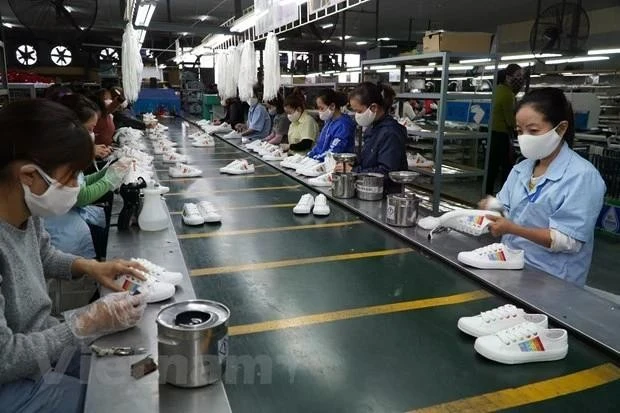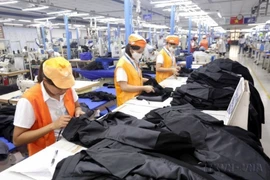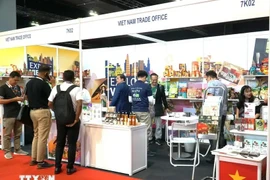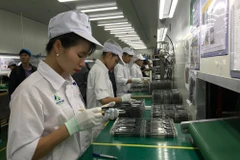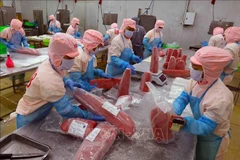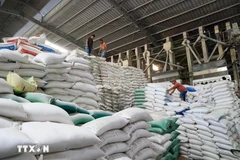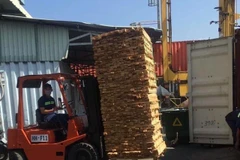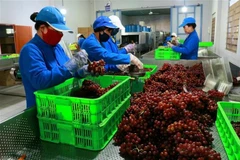Hanoi (VNA) - In the context of a rapidly changing global economy, adhering to green standards not only helps Vietnamese businesses enhance brand value but also opens significant export opportunities, especially to demanding markets like the UK, heard a seminar in Hanoi on December 11.
When businesses comply with global standards, they not only have the chance to increase market share but also protect their position in the global supply chain. Conversely, companies that fail to adapt will face the risk of losing markets and decreasing competitiveness.
Stringent requirements from UK market
In the three years since implementation of the UK-Vietnam Free Trade Agreement (UKVFTA), trade turnover between the two countries has continuously grown. However, according to experts, alongside the benefits from the commitments in the agreement, Vietnamese businesses also face increasingly high requirements from markets, particularly in terms of sustainability and green standards. This is something that many countries, including the UK, have implemented to protect the environment and promote sustainable development.
Specifically, the UK government has introduced stringent regulations on green trade, requiring imported products to comply with environmental protection standards. One notable regulation is the imposition of taxes on plastic packaging that is not recycled, or the ban on importing goods that may harm forest resources. This means that businesses exporting to the UK must adjust their production processes to ensure their products meet these strict environmental standards.
The UK market stands out with high standards on food safety, plant quarantine, and more recently, policies on climate change. The UK government not only sets requirements on product quality but also focuses heavily on the sustainability of production processes. For example, when exporting seafood, companies are required not only to ensure product quality but also to prove the legality of the raw materials, particularly avoiding the use of illegal marine resources.
In addition to environmental requirements, another important factor is the consumption trend of UK citizens, especially high-income consumers who are willing to pay more for greener and cleaner products. This creates opportunities for Vietnamese businesses to produce sustainable products, which not only increases product value but also helps them capture market share in premium markets.

To meet green standards, many Vietnamese businesses have begun transitioning and investing in sustainable production models. Nguyen Canh Cuong, former Vietnamese Commercial Counselor in the UK, shared that the UK is one of the pioneering countries in developing and promoting green trade policies. However, not all businesses can easily transition to meet this trend. Companies like Vinasamex, with a value chain cooperation model from raw materials to finished products, are proving that adhering to sustainability principles helps increase their export capabilities to the UK, even though their export volume is not large.
Nguyen Thi Huyen, CEO of Vinasamex, stated that although the costs of marketing and participating in international trade fairs may be high, support from government agencies in trade promotion is essential. Businesses also hope to receive support in the form of low-interest loans and favorable policies to develop sustainable models, which would enhance competitiveness in the global market.
Future orientations

The Vietnamese Government, through the Ministry of Industry and Trade (MoIT), has implemented various measures to assist businesses in building industry-specific ecosystems, helping them integrate further into global supply chains. Nguyen Son Tra, a representative of the ministry’s Multilateral Trade Policy Department, mentioned that the MoIT is developing industry ecosystems, such as for the cinnamon and anise sector, to help businesses join regional and global supply chains more effectively.
Businesses need to understand that green standards are not just a short-term trend but a long-term requirement in international trade, he said, adding adapting and investing in sustainable production not only helps businesses expand their markets but also creates opportunities for collaboration with financial institutions, investment funds, and priority support from international partners./.
